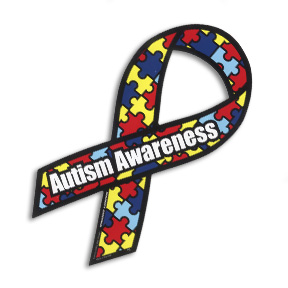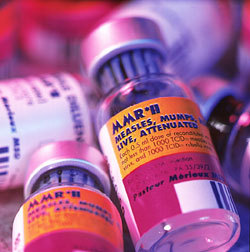

| Home |
| History Lesson |
| What is Autism? |
| What is the MMR Vaccine? |
| Is There a Link? |
| Just the Facts |
| What Parents Need to Know |
| Conclusion |
| References |
What is this all about? |
|
Since the beginning of time, there has been a natural human desire to explain and define the unknown. When a definitive etiology for a disorder is not certain, theories of etiology proliferate. Autistic disorder, or autism, is a severe form of psychopathology typically evident before a child’s third birthday. It is a disorder characterized by an array of severe and pervasive behavioral deficits and excesses, which has made it a popular field of study for scientists and medical professionals alike for over half a century. One of the most popular and widely debated potential causes of autism disorders has centered on the childhood measles, mumps, and rubella (MMR) vaccine. The MMR immunization was widely introduced in the 1980s as a combination of three vaccines into one two dose injection. The overall effectiveness of the MMR vaccine is well-documented: the United States, as well as many other countries around the world, has reported a significant decrease in the diagnosis of measles, mumps, and rubella. The accusations and controversies surrounding a link between the MMR vaccine have to date been unfounded (Fisher, 2006). Despite there being no scientific proof that confirms a link between the MMR vaccine and autism, the public is confused by the issue and has been choosing to opt out of the MMR vaccine because of possible risks. Parents may only be doing what they feel is best for their children, but the MMR vaccine has been time-tested and proven with its effectiveness to prevent serious illness, epidemic outbreaks. The risk of triggering autism from the MMR vaccine is greatly outweighed by the risk of not protecting young children with the important vaccine. Parents need to be made aware of the facts and to stop being blinded by inaccurate studies and the recent celebrity backing and mass media attention that falsely report links between the MMR vaccination and autism.
|
||

